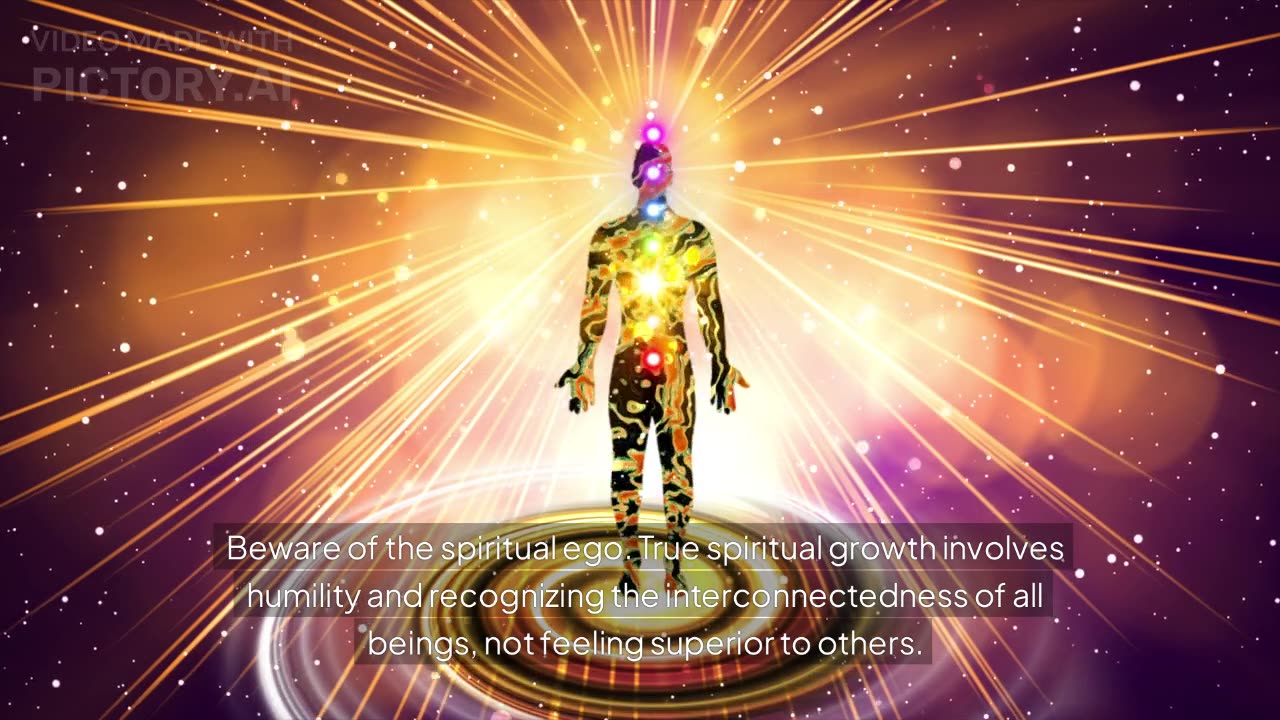Premium Only Content

Ten Common Misconceptions About Spirituality
Read full article here:
https://spiritualseek.online/blog/ten-common-misconceptions-about-spirituality/
------------------------
Excerpt from the original article
Spiritual Seeking is a highly personal experience that is obscured by a multitude of misconceptions. This is due to the fact that spirituality has become a mass phenomenon, and as a result is treated as a commercially exploitable product. When selling a product, the focus is on marketing techniques capable of generating sales, with the initial purpose and true nature of the product being overlooked. In the case of spirituality, this is the evolution of consciousness. In order to clarify these misunderstandings, the following ten points will be outlined, each supported by philosophical insights and quotes. Spirituality can take many different forms, but it definitely does not express itself in the ones listed below. Let’s see them.
1. Spirituality and Religion Are the Same Thing
While spirituality and religion can overlap, they are distinct concepts. Religion typically involves organized beliefs, rituals, and doctrines, whereas spirituality focuses on personal experience and inner growth. Philosopher Ken Wilber emphasizes that spirituality transcends religious boundaries, offering a path to connect with a higher reality beyond dogma. For instance, someone might attend church services regularly but still feel spiritually unfulfilled if they do not engage in personal reflection or seek deeper meaning beyond the rituals.
2. Spirituality Is an Escape From Reality
Some individuals mistakenly view spirituality as a means to escape reality or avoid life’s challenges. True spirituality encourages facing life’s difficulties with courage and resilience. Thomas Merton highlighted that living fully requires engaging with all aspects of life—body, soul, mind, heart, and spirit—rather than retreating from them. An example of this misconception could be someone who uses meditation solely to avoid dealing with stressors rather than addressing the root causes of their anxiety.
3. Spirituality Brings Abundance and Wealth
In a consumer-driven society, material success is often equated with happiness. However, spirituality does not measure fulfillment by wealth or possessions. Jean-Paul Sartre critiqued modern civilization for its material focus at the expense of spiritual development. Consider the story of Siddhartha Gautama (the Buddha), who abandoned his princely life in search of enlightenment after realizing that material wealth could not satisfy his spiritual longing.
4. Spirituality Makes One Superior to Others
A common trap in spiritual seeking is developing a sense of superiority over others who may not share the same path or beliefs. This “spiritual ego” contradicts true spiritual growth, which involves humility and recognizing the interconnectedness of all beings. For example, someone might feel superior because they practice yoga daily while dismissing others’ paths as less valid.
soul spiritual awakening test
5. Spirituality Is an Easy Path to Enlightenment
Many people expect immediate transformation through spiritual practices or experiences such as meditation or psychedelics. However, genuine spiritual awakening typically unfolds gradually over time through sustained effort and introspection rather than sudden epiphanies. The journey of Ramana Maharshi illustrates this; despite his profound early experiences of self-realization, he continued to deepen his understanding throughout his life.
6. Spirituality Bestows Supernatural Abilities
There is often confusion between psychic abilities and spiritual awakening. While psychic phenomena involve accessing other dimensions of reality through heightened perception (e.g., clairvoyance), true spirituality focuses on opening one’s heart center and nurturing emotional intelligence. A person might have vivid dreams or premonitions but still lack compassion or empathy essential for genuine spiritual growth.
7. Spirituality Leads to Positive Thinking
The pursuit of “love and light” without acknowledging darker emotions can lead to an imbalanced approach known as “spiritual bypassing”. Authentic spirituality embraces both positive qualities like compassion alongside shadow work—addressing unresolved issues within oneself—to achieve holistic growth. Carl Jung’s concept of integrating the shadow self exemplifies this need for balance in personal development.
8. Spirituality Is Conforming to Certain Life Models
Following popular trends labeled as “spiritual” does not guarantee genuine progress on one’s path toward self-discovery or enlightenment; it may simply reflect societal pressures rather than authentic exploration into deeper truths about existence itself. For instance, adopting practices like crystal healing because they are fashionable without understanding their significance misses the essence of personal exploration inherent in spirituality.
-
 1:29:26
1:29:26
Glenn Greenwald
9 hours agoICE Detains Permanent Resident for Protesting Israel; European Leaders Make Maniacal Rearmament Vows They Cannot Keep | SYSTEM UPDATE #421
116K189 -
 1:02:56
1:02:56
Donald Trump Jr.
11 hours agoUSAID Slush Fund Slashed, X Cyberattack, Plus Interview with Nate Morris | Triggered Ep.223
128K111 -
 5:48:40
5:48:40
Dr Disrespect
15 hours ago🔴LIVE - DR DISRESPECT - THE SHOTTY BOYS - WARZONE, PUBG, FORTNITE
213K41 -
 2:12:50
2:12:50
Adam Carolla
16 hours agoDouble Murder Convict to be executed by Firing Squad + Comedian Elon Gold + Comedian Carol Leifer
81.4K6 -
 46:08
46:08
Kimberly Guilfoyle
12 hours agoBad Day to be a Bad Guy: FBI Taking Down World’s Worst Criminals, Live with John Nantz | Ep.203
171K60 -
 DVR
DVR
Redacted News
10 hours agoWhat's REALLY going on in Syria? | Redacted with Natali Morris
179K128 -
 54:18
54:18
Candace Show Podcast
11 hours agoHarvey Speaks: Jessica Mann & The Five Year Affair | Ep 3
191K86 -
 56:53
56:53
Grant Stinchfield
10 hours ago $8.53 earnedFreeze Spending & Kick the Can Down the Road... Why Republicans Should do Just That!
101K16 -
 56:48
56:48
VSiNLive
10 hours agoFollow the Money with Mitch Moss & Pauly Howard | Hour 1
79.4K1 -
 3:28:27
3:28:27
Barry Cunningham
11 hours agoTRUMP DAILY BRIEFING: INTERNET UNDER ATTACK! X & RUMBLE DOWN! EXECUTIVE ORDER SIGNING!
98K59